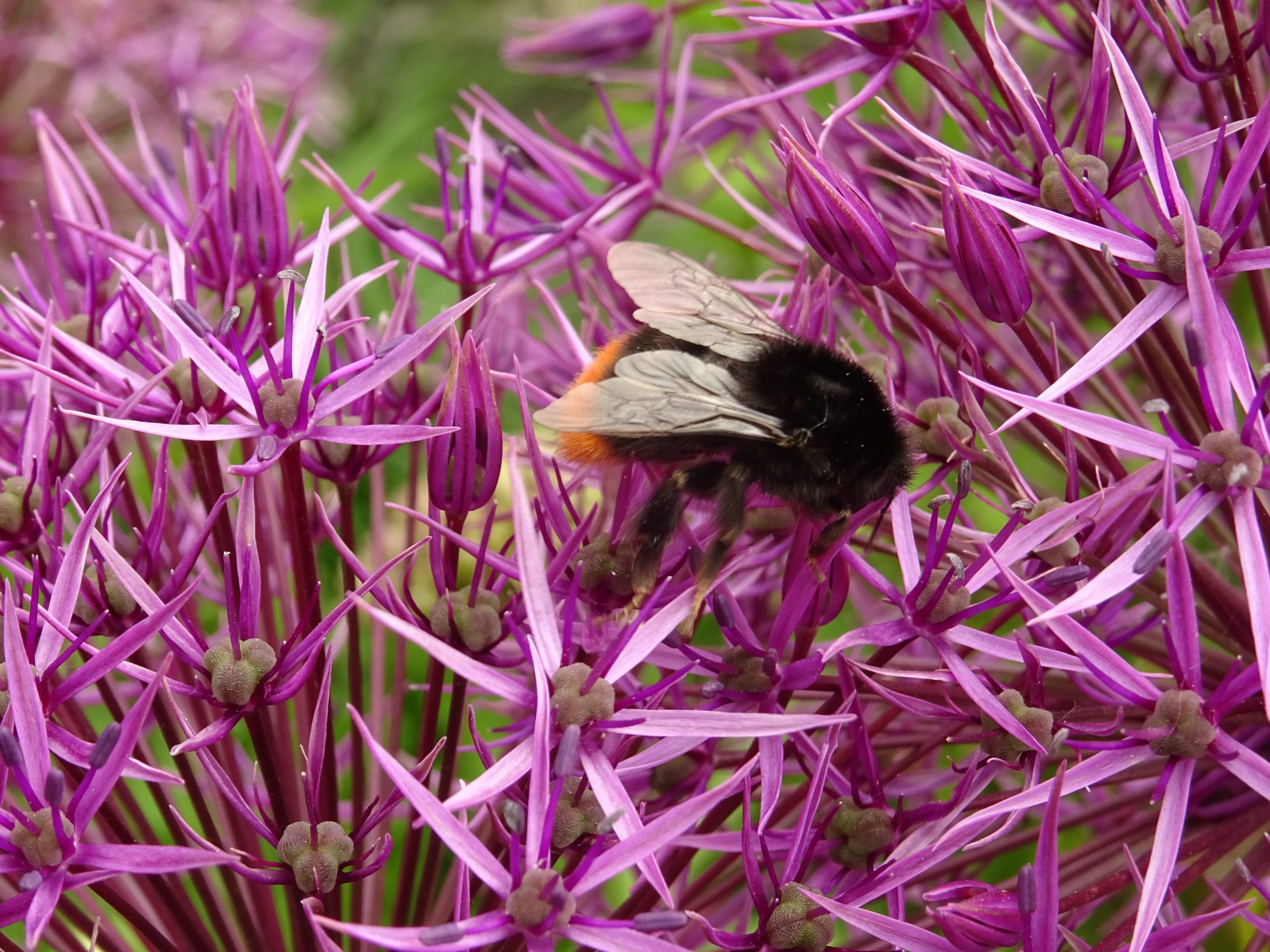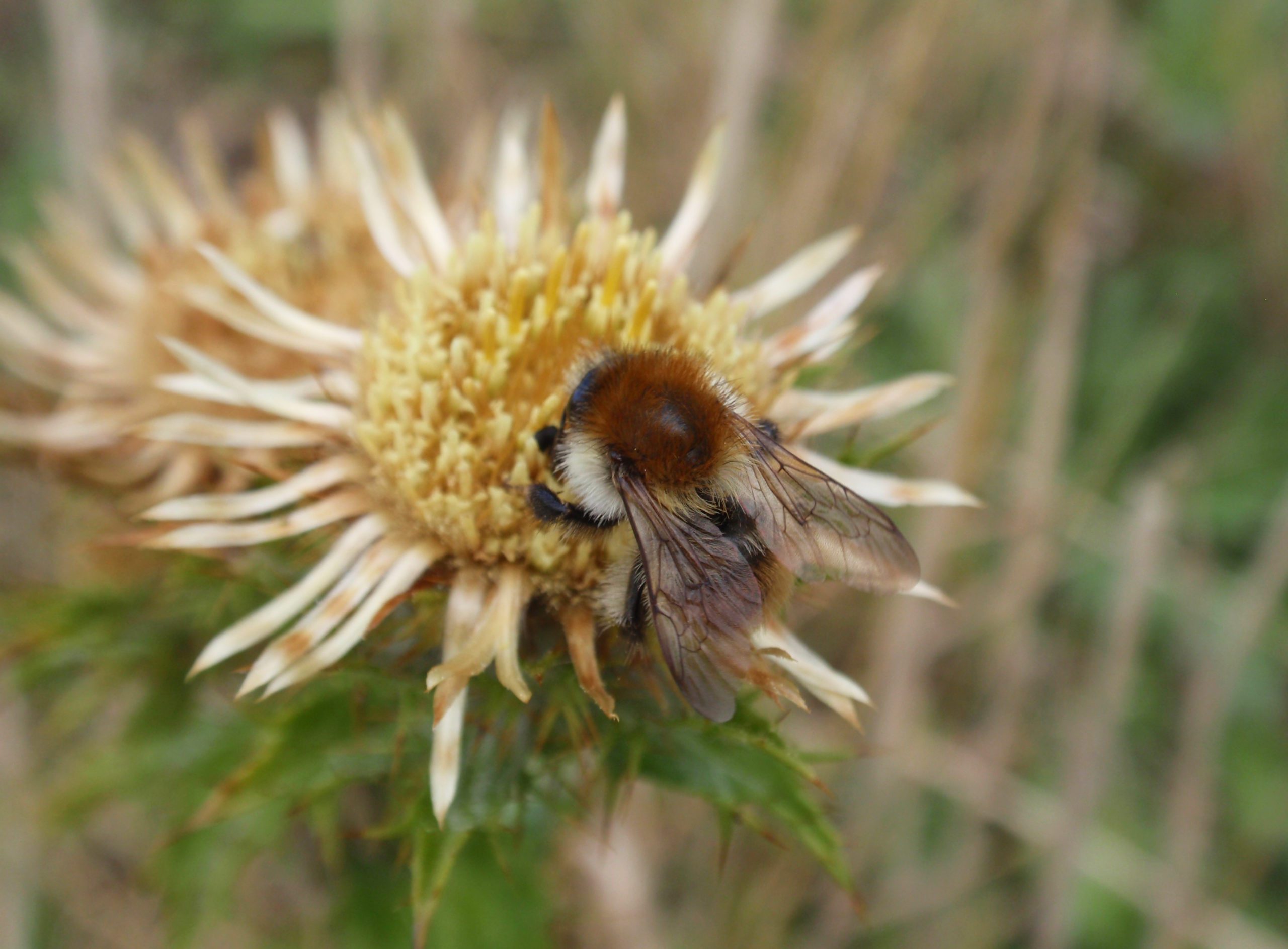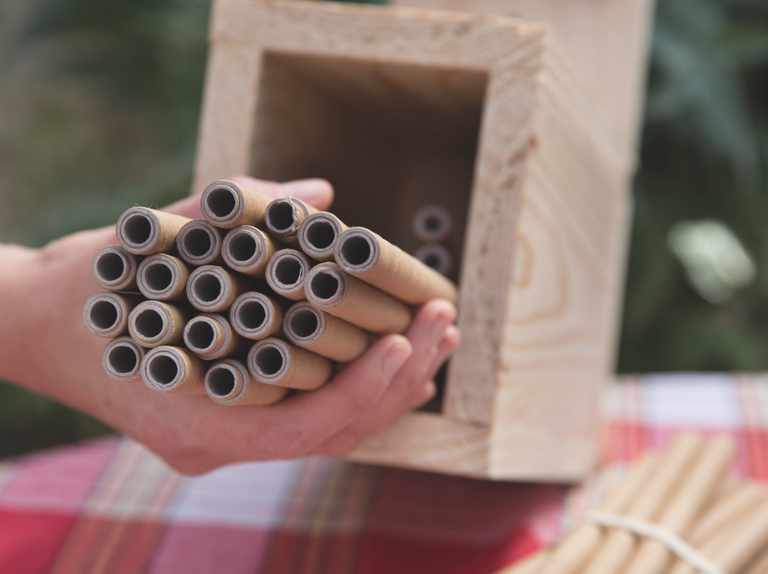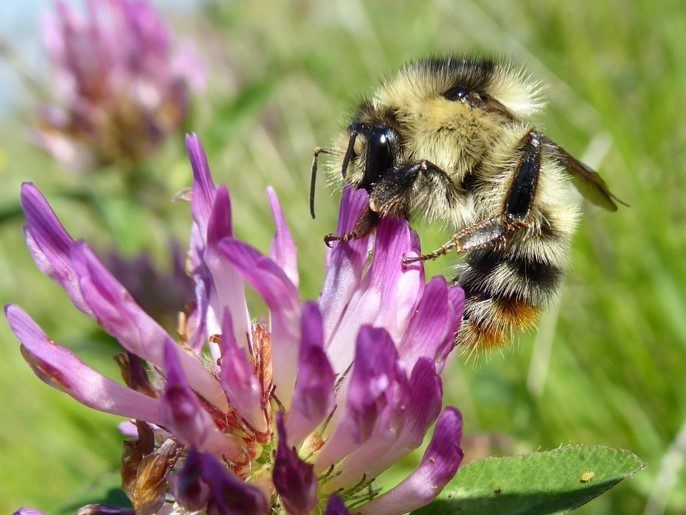Hooray! For World Bee Day 2021
20th May 2021
A guest blog by Kent’s Plan Bee Chair Seán Holden for World Bee Day 2021.
Kent and Bees
Kent has a special relationship with bees which makes World Bee Day 2021 extra important to our county. We’ve recognised that in Kent’s Plan Bee, Kent County Council’s pollinator action plan. The bees, it seems, like being here. The county is home to more than 200 species including some of the UK’s rarest. The most endangered bumblebee of all, the shrill carder, lives in only five isolated areas, among them the north and east Kent coasts where the distinctive high pitched buzz, which gives it the name, can be heard along a number of sites. Keep an eye (and an ear) out for them in coastal grassland.
We also have the sea aster bee, a stripey solitary bee named after its favourite food source. The sea aster’s a saltmarsh plant with starry flowers found along the Thames estuary. There are two scarce gingers in the county. The brown-banded carder and moss carder who both live amongst our flower-rich grasslands.
Finally, there is the ruderal bumblebee. It’s one of the largest bumblebee species but only found in the south of England and it’s scarce even here. The breadth of Kent’s different and beautiful habitats explains why so many kinds of bees and many other pollinators and people, like to make their homes here
A worrying decline and Kent County Council’s response
It’s not all cherry orchard cheer though. Sadly, bees and their pollinator peers are in trouble. There are some alarming numbers given that a third of our food depends on pollinators and 40% of the county’s agriculture is insect pollinated horticulture. The majority, 60%, of pollinators are in decline and insect abundance has fallen by 75% in the past 27 years. Two species of bumblebee were declared extinct in the UK in the 20th century, including the short-haired bumblebee in 2000, last seen at Dungeness. It was in response to this crisis that Kent County Council published its–action plan for the county’s pollinators which we call Kent’s Plan Bee.
The 5,400 miles, of, largely rural, roads in Kent with their grass verges offer the county council many ways to make a difference for our pollinators and so a lot of its work has gone into that network. That’s included 123 Roadside Nature Reserves created in partnership with Kent Wildlife Trust.
The swathe cut’s been delayed in Romney Marsh to avoid the peak pollinator season. Other areas where the rural swathe cut could be managed differently have been identified. The county council’s working with district and parish/town councils to change urban highway verges to wildflower verges.
We’ve also been making a difference for pollinators in our country parks. Four of them, covering more than 47ha of grassland, are managed to encourage vital wildflower diversity. Everywhere Kent County Council is reviewing the management of its land and buildings to make sure the needs of pollinators are kept in mind.
Of course, there’s always more to be done, which is why we’re delighted to have for a second year of dedicated expert support in carrying out Kent’s Plan Bee from our partners the Bumblebee Conservation Trust and the Kent Wildlife Trust.
Mobilising Kent’s people for bees
We are taking a lead in mobilising the people, the businesses, the schools, the gardeners, the farmers, the old and the young – everybody who lives here – to act to improve the habitat and the food sources of our insect residents to reverse their frighteningly rapid decline. So whilst we’re looking at what we can change in the delivery of our services to help bees and other pollinators, there’s lots you can do:
- plant for pollinators;
- let grounds grow wild in the spring and summer;
- put up bee hotels and bug mansions to provide nests and shelters;
- go pesticide free;
- join in national campaigns to help to monitor our pollinator numbers.
This year the Bumblebee Conservation Trust is asking everyone to “Bee the Change” and pledge to help these insects. What will you pledge today for Kent’s bees?
Continue To Support World Bee Day 2021
Keep up to date with our activities for Kent’s Plan Bee and get advice and tips on how to help pollinators via our Facebook page https://www.facebook.com/KentsPlanBee
Popular articles
Walking the Pilgrims Way
Experience the beauty of walking across the Kent Downs NL through the…
Pumpkin Picking in Kent 2024
Get ready for pumpkin picking season and head out with loved ones…
Explore Kent’s Scenic Walks by Train
Discover Kent's hidden gems hassle-free by train, where you can start walking…




